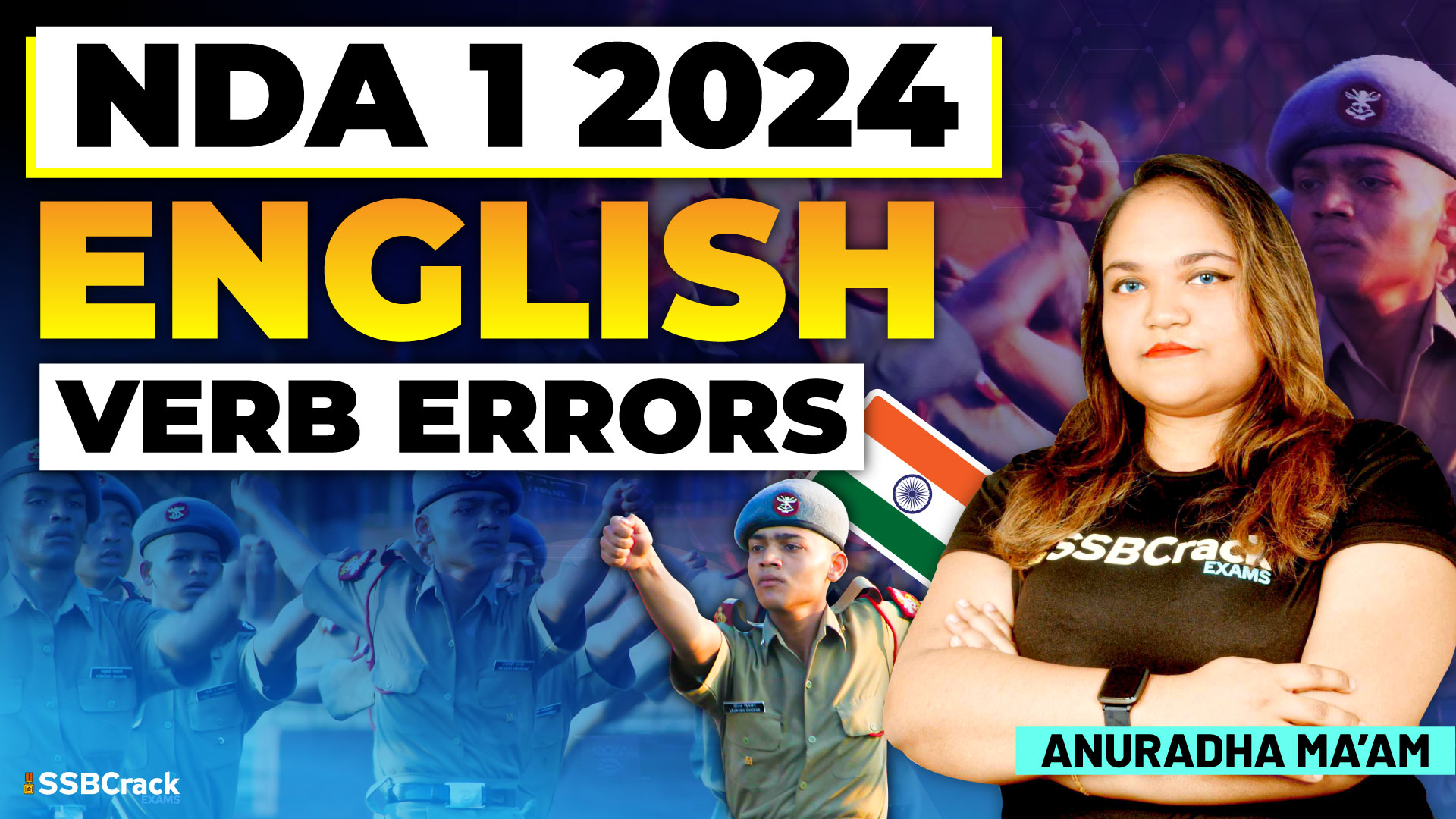The National Defence Academy (NDA) examination is a formidable challenge for individuals aspiring to embark on a career in the esteemed armed forces. Within the English section of the exam, a strong command of verbs, especially in terms of subject-verb agreement, is not only advantageous but is fundamental for effective communication. This article aims to underscore the importance of verbs and shed light on various subject-verb agreement errors that NDA aspirants should be vigilant about when preparing for the exam.
- The Centrality of Verbs in Effective Communication: Verbs serve as the backbone of sentences, portraying actions and states of being. In the military, where precision and clarity are paramount, a robust command over verbs, coupled with an understanding of subject-verb agreement, is essential for aspiring officers.
- Common Subject-Verb Agreement Errors to Beware Of:a. Mismatch in Number: Subject-verb agreement requires the verb to match the number of the subject. Errors like “The team are” instead of “The team is” can compromise grammatical accuracy.b. Collective Nouns: Collective nouns, representing groups, can take singular or plural verbs based on the context. For example, “The squadron is” (singular) vs. “The squadron are” (plural).c. Indefinite Pronouns: Indefinite pronouns, such as “everyone” or “nobody,” often lead to errors in subject-verb agreement. For instance, “Everyone were” should be corrected to “Everyone was.”d. Intervening Phrases: Phrases between the subject and the verb can sometimes confuse agreement. “The group of soldiers are” should be corrected to “The group of soldiers is.”e. Compound Subjects: Compound subjects connected by “and” generally take a plural verb. However, errors occur when the subject is treated as singular, as in “The officer and captain is” instead of “are.”
- Strategies to Avoid Subject-Verb Agreement Errors:a. Regular Practice: Engage in consistent practice exercises focused on subject-verb agreement to reinforce understanding and identify potential errors.b. Clear Identification of Subject: Ensure clarity in identifying the subject to which the verb refers, especially in sentences with complex structures or intervening phrases.c. Awareness of Collective Nouns: Be aware of collective nouns and their ability to take singular or plural verbs based on the context.d. Understanding Indefinite Pronouns: Comprehend the rules regarding subject-verb agreement with indefinite pronouns to avoid common errors.e. Compound Subject Recognition: Recognize compound subjects and apply the appropriate verb agreement rules, especially when connected by “and.”
- The Significance of Subject-Verb Agreement for Aspiring Officers: Military communication demands precision, and errors in subject-verb agreement can compromise the clarity and professionalism expected of officers. Aspirants must recognize that mastering subject-verb agreement is not merely an academic exercise but a crucial skill for effective communication in the dynamic and challenging environments of military service.
Conclusion:
In conclusion, a thorough understanding of verbs and subject-verb agreement is indispensable for NDA aspirants seeking success in the English section of the examination. By being vigilant about common subject-verb agreement errors and implementing strategic study practices, aspirants can fortify their linguistic skills and align themselves with the disciplined communication standards expected in military service. A profound grasp of subject-verb agreement is not merely a test-taking necessity but a foundational skill that contributes to effective communication in the dynamic and challenging environments inherent to a career in the armed forces.







